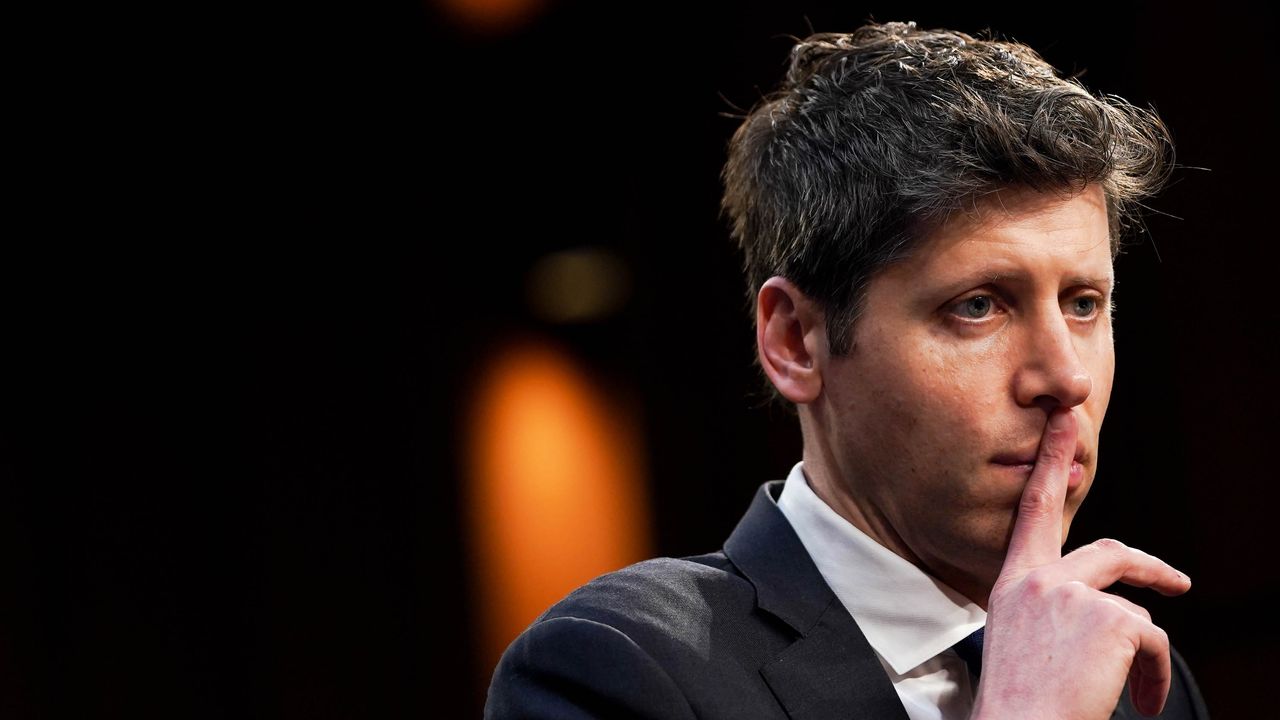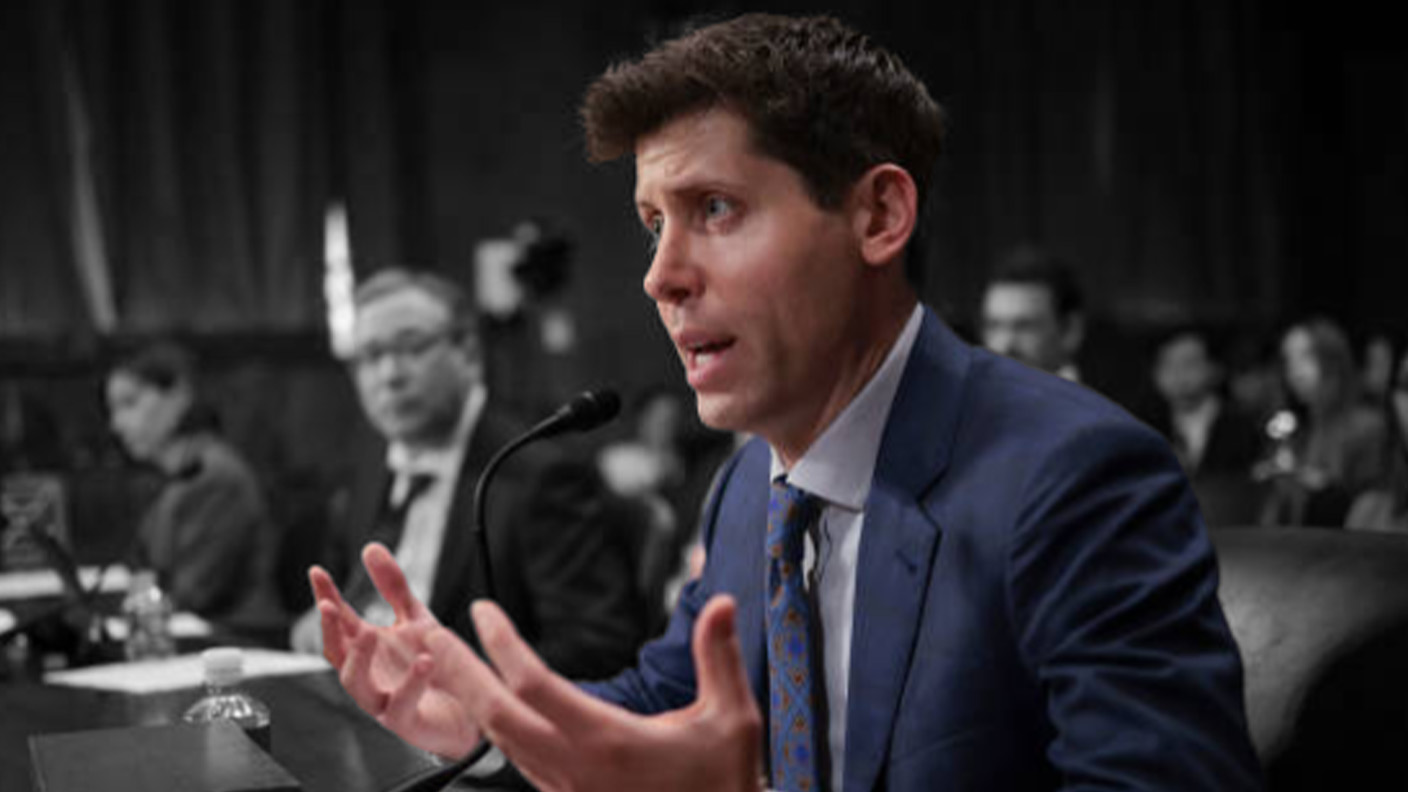
It appears that our jobs might be at risk due to the fast-paced advancement and global spread of AI technology in various sectors. This has led to discussions about job stability, as well as concerns over privacy and security.
During a talk at the Capital Framework for Large Banks conference in Washington, OpenAI CEO Sam Altman expressed uncertainty about how the job market may change and which careers could be affected as AI technologies continue to advance and possibly surpass human abilities, according to PC Gamer.
According to the executive:
One point I often emphasize in our organization is that nobody can predict the future with certainty. Despite all the intelligent-sounding predictions out there, we simply don’t know what lies ahead. In my view, our system is so complex and this technology so groundbreaking that it makes accurate prediction incredibly challenging.
Additionally, despite the heated debate surrounding him, this influential figure openly acknowledged his lack of certainty about where the AI revolution might guide the globe. Nevertheless, he proceeded to share his thoughts and forecasts regarding the potential effects of AI on employment trends.
In some instances, entire job sectors might become obsolete. On the other hand, fresh categories of jobs may emerge. Generally speaking, I believe this transition will resemble much of our past, as advancements in tools and technology will enable people to accomplish more at their work.
OpenAI CEO, Sam Altman
In other conversations, he told The Guardian that certain roles such as customer service might vanish from the workforce. He found his encounters with AI customer service assistants remarkable, stating they made the process seem less intimidating.
Now, when you refer to one of these as an AI, it functions much like a highly competent individual. It can handle any customer service task that an employee at that company could, without errors. It operates swiftly, providing immediate responses upon being called, ensuring a seamless and efficient interaction.
Although Altman appears adept at conversing with AI in customer service roles, he firmly believes in the necessity of human doctors for healthcare. He unequivocally prefers a doctor over an AI-driven tool, acknowledging that ChatGPT might excel in diagnostics compared to many global physicians.
I prefer having a real, human doctor for my health concerns. While it’s true that ChatGPT can often be more accurate than many doctors when it comes to diagnosis, there are countless stories online about how ChatGPT has even saved lives. However, despite these instances, people continue to visit doctors. Perhaps I’m old-fashioned, but I feel uneasy putting my health in the hands of a machine like ChatGPT without human oversight.
It’s noteworthy that Microsoft has introduced a cutting-edge AI medical tool, boasting a fourfold improvement in accuracy and savings of 20% compared to human doctors. The AI’s chief executive, Mustafa Suleyman, views this development as a significant stride towards achieving medical superintelligence.
However, it’s worth noting that another research found that AI tools might suggest users not to seek medical help when their query contains errors like typos or additional spaces in the sentence.
Sam Altman is worried about Gen Z’s “emotional overreliance” on ChatGPT

At a banking conference organized by the Federal Reserve, OpenAI CEO Sam Altman expressed his worry about young people relying too heavily on ChatGPT for making decisions. This information was reported by Business Insider.
Over-reliance on ChatGPT is concerning. Some young people have admitted that they struggle to make decisions in their lives without consulting ChatGPT about everything. They feel as though ChatGPT understands them and their friends, and they end up following its advice blindly. This situation seems troubling to me.
OpenAI CEO, Sam Altman
In the earlier part of this year, a research study conducted by Microsoft scientists highlighted a potential concern: Overusing AI systems such as myself or Copilot might cause a decline in your problem-solving abilities by reducing the exercise of critical thinking skills, potentially weakening your mental capabilities over time.
Sam Altman noted that ChatGPT could potentially offer guidance superior to what a human therapist might provide. However, he expressed concern that relying on AI to dictate how we should live our lives could feel uncomfortable and pose potential risks.
As a devoted admirer, I’d like to share a fascinating perspective: It seems the recent revelation stems from remarks made by an executive about the faith people place in ChatGPT, despite its tendency to fabricate information. To put it simply, Sam Altman suggested that perhaps we should be wary of technology we trust less, not the one we trust more.
Read More
- Best Controller Settings for ARC Raiders
- Ashes of Creation Rogue Guide for Beginners
- Sega Insider Drops Tease of Next Sonic Game
- Neverness to Everness ‘Co-Ex Test’ sign-ups now available
- Donkey Kong Country Returns HD version 1.1.0 update now available, adds Dixie Kong and Switch 2 enhancements
- Fantasista Asuka launches February 12
- The Festive Pottery Throw Down 2025 line-up: Meet the celebrities
- AAA Ubisoft Games Now $6 for Limited Time
- 10 Great Netflix Dramas That Nobody Talks About
- 32 Kids Movies From The ’90s I Still Like Despite Being Kind Of Terrible
2025-07-24 13:09